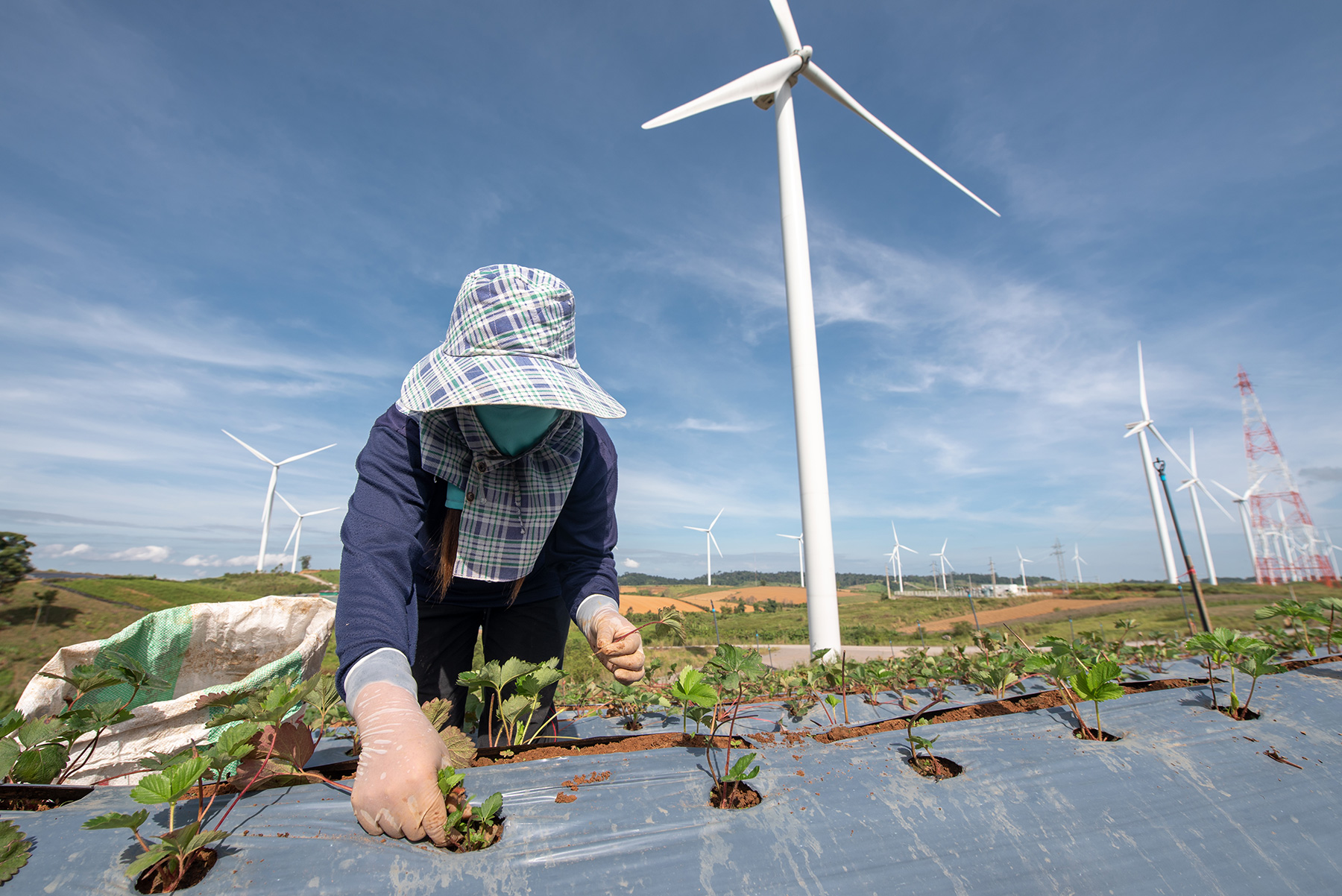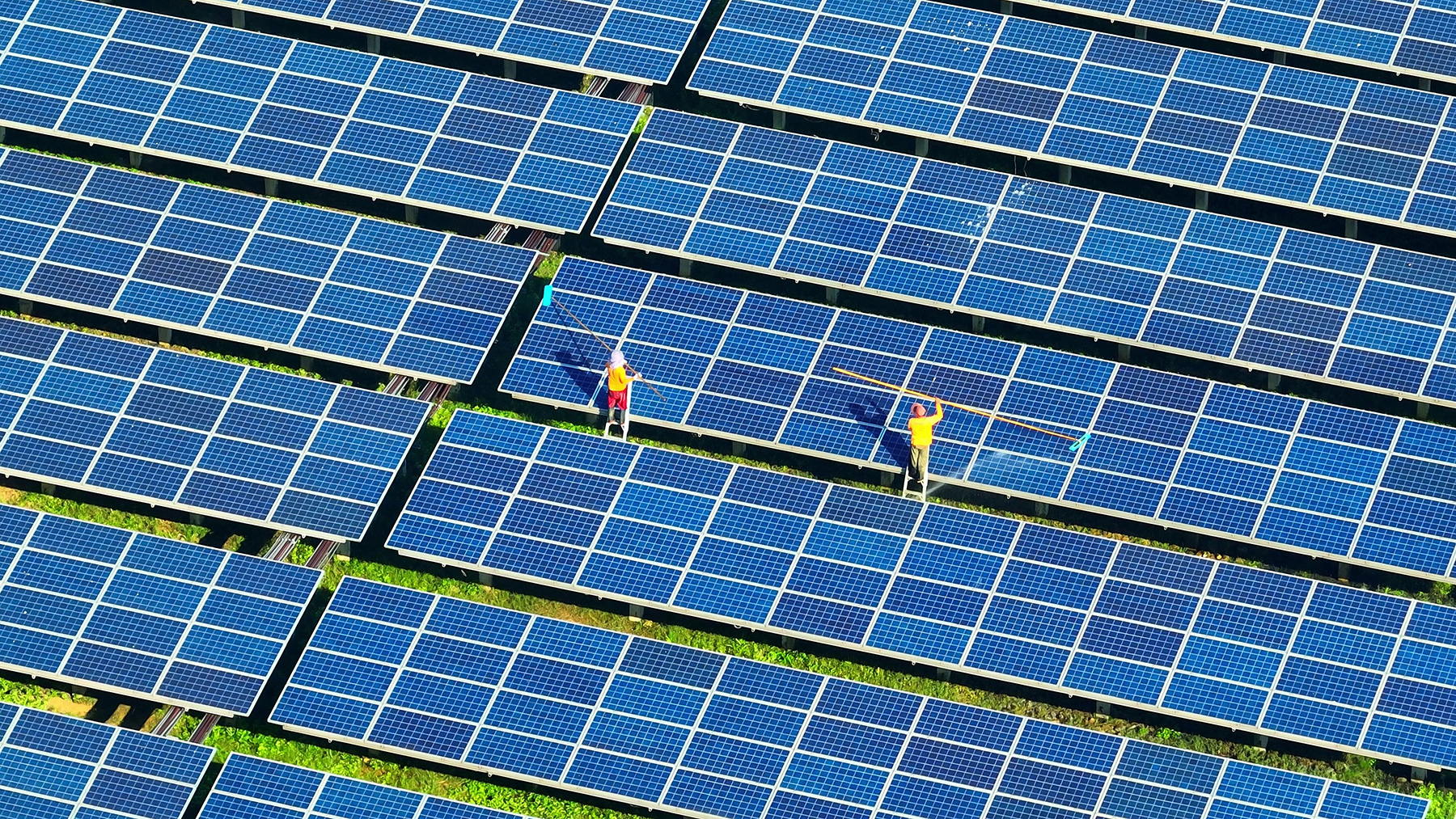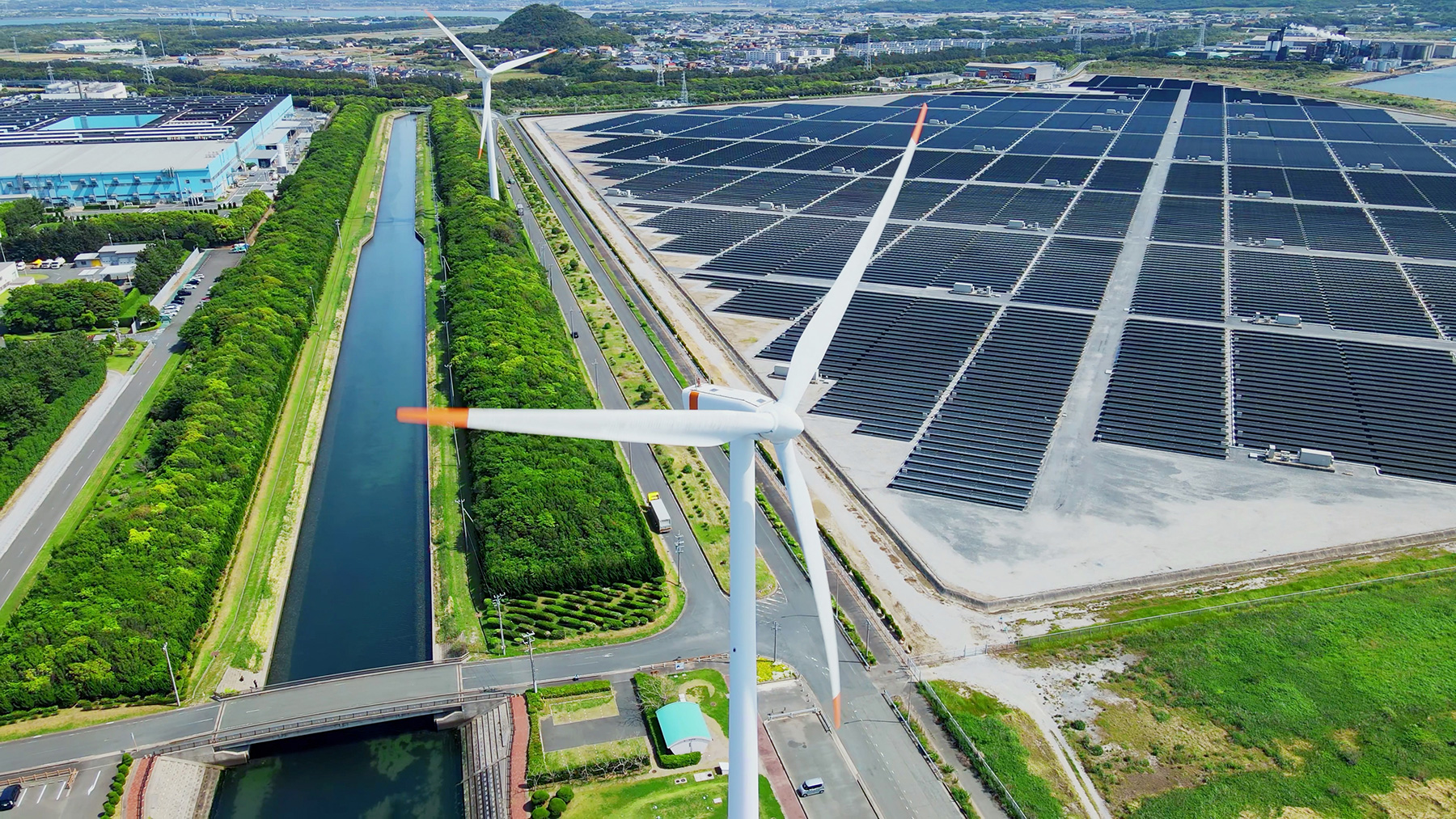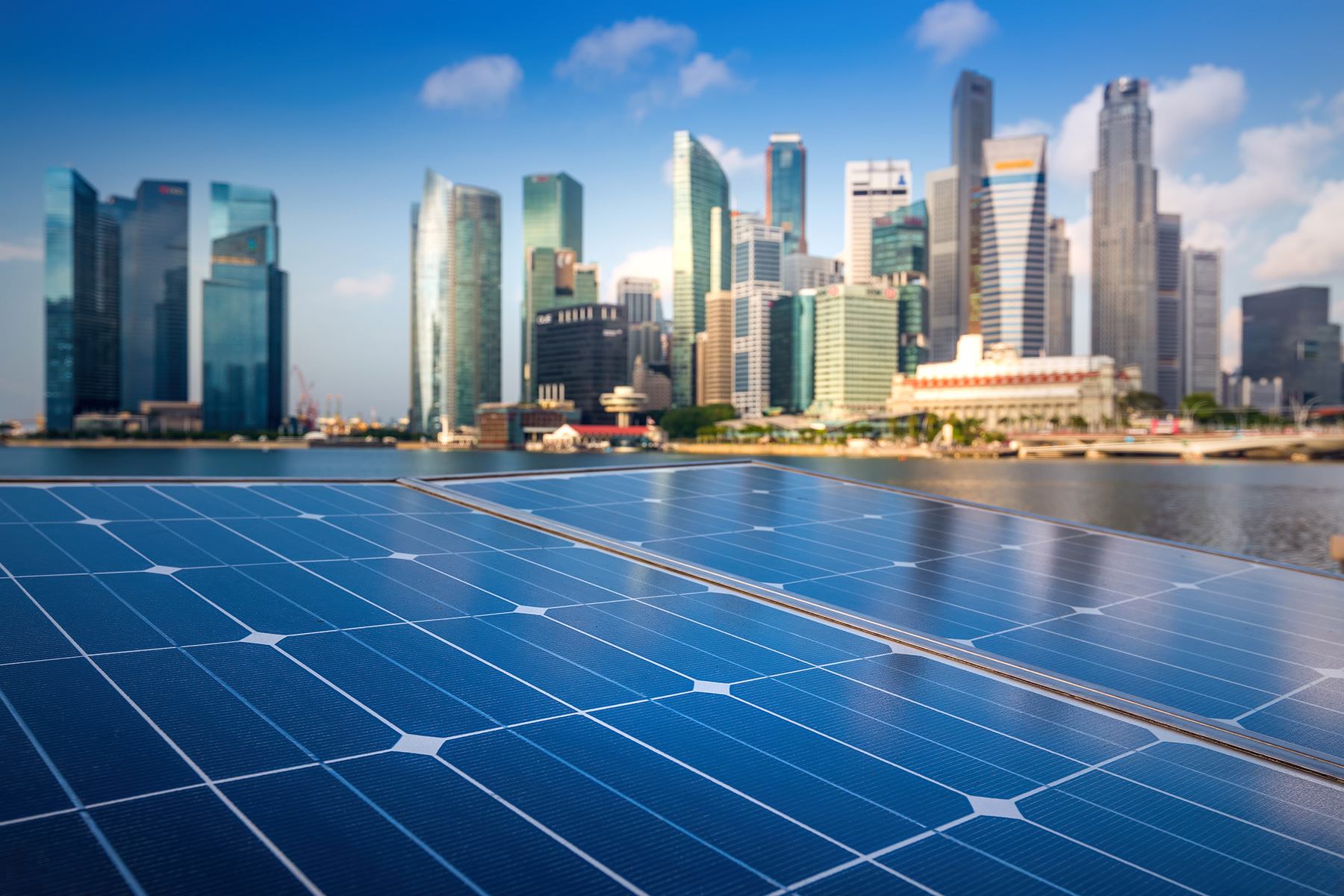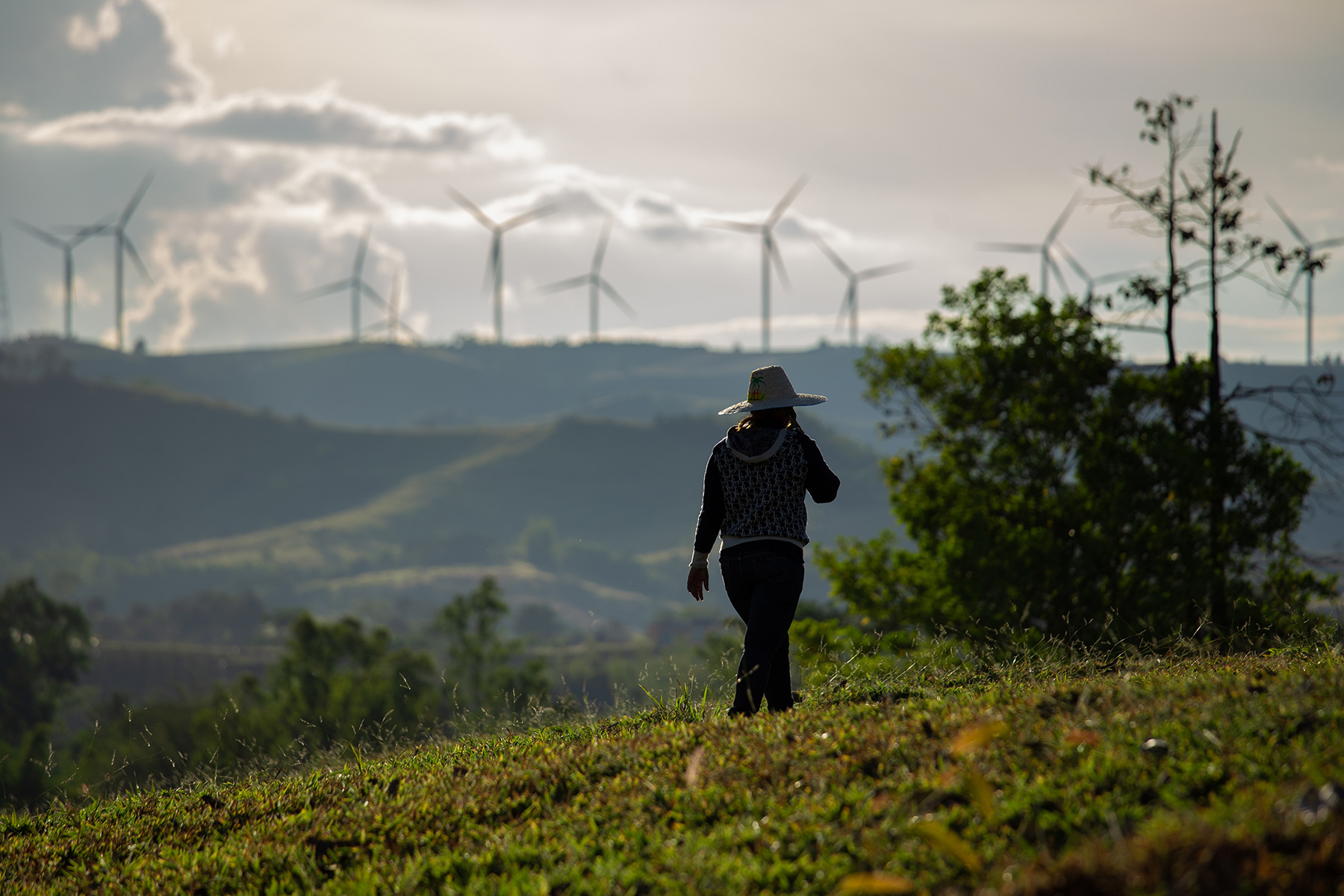Accelerating the transition to a cleaner, more prosperous future
Home to some of the fastest-growing economies and populations in the world, many middle- and lower-income geographies in Asia are experiencing surging demand for energy, placing significant strain on infrastructure, communities, economies, and ecosystems. As energy consumption rises, so do greenhouse gas emissions—absent a successful transition.
With affordable and abundant renewable energy resources such as wind and solar at our disposal, accelerating clean energy solutions in our region presents significant economic opportunities – new jobs, industries and innovation – while addressing energy poverty and improving overall standards of living.
There is still much to be done. Although the share of solar and wind in electricity generation across our region has grown significantly in recent years, it remains only a fraction of the total electricity mix and continues to lag behind most other regions globally.
Through our grants, we support organisations at global, regional, national and local levels to forge strategic partnerships, conduct cutting-edge research, gather critical data, develop policy recommendations, advocate for scalable solutions, and facilitate multi-stakeholder dialogues – all with the aim of accelerating the transition to a cleaner, more prosperous future for our region and the planet.
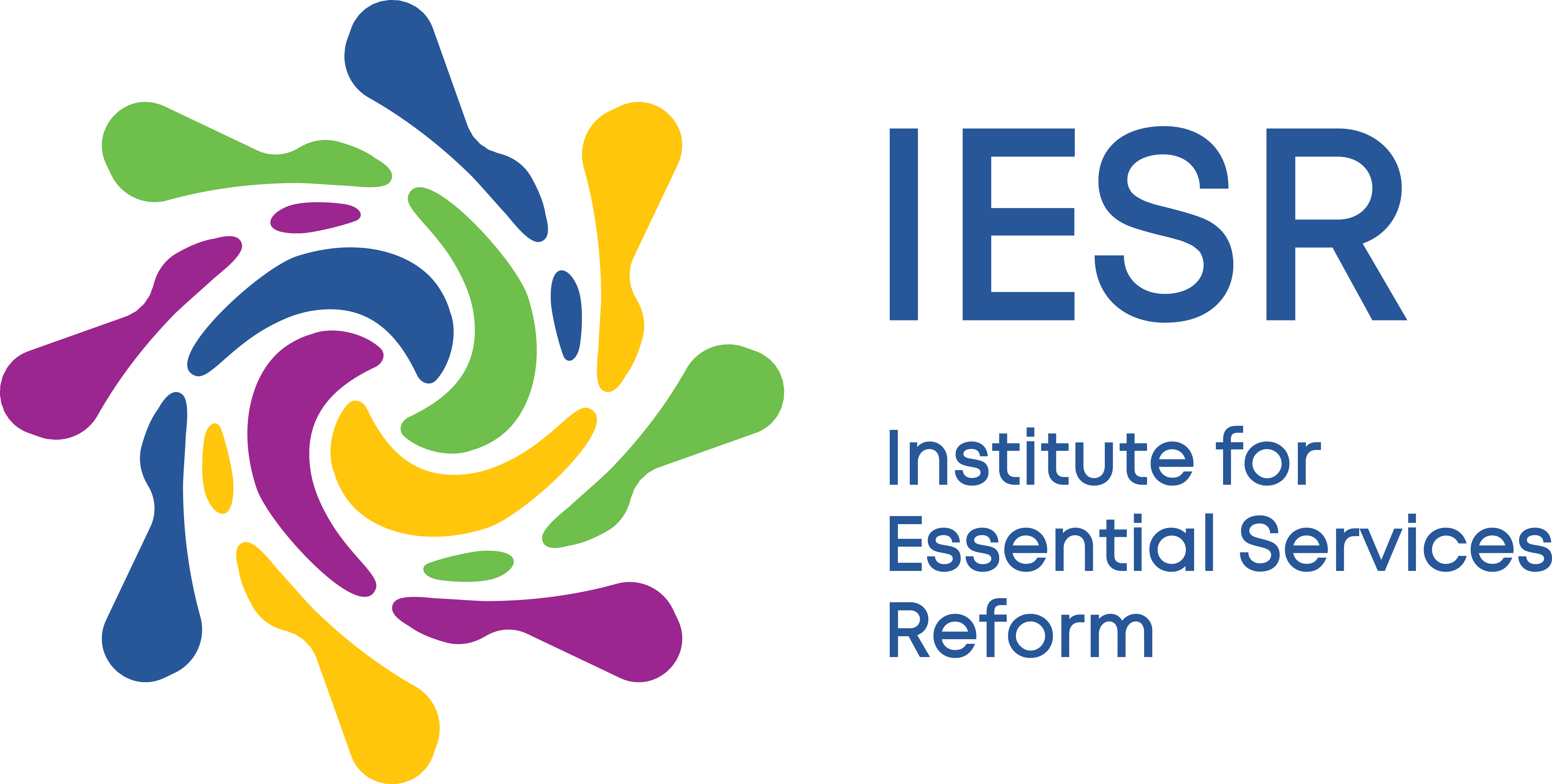
The Institute for Essential Services Reform (IESR) is a mission-driven, data-focused think tank that advocates for policy reform to accelerate Indonesia’s energy transition towards decarbonization in line with the Paris Agreement. IESR works at national and sub-national levels.
Nationally, IESR collaborates with various ministries, including the Ministry of Energy and Mineral Resources (ESDM), to design coal phase-out plans and deploy renewable energy. It contributes to the Just Energy Transition Partnership (JETP) Technical Working Group, aiming for a 44% renewable energy mix by 2030. IESR supports regulatory reform measures, partners with government bodies, and advises bilateral programs such as the Net Zero World initiative. Furthermore, IESR assists the Directorate of Electricity, Telecommunications, and Informatics (KTI) under the Ministry of National Development Planning (Bappenas) in setting renewable energy targets and developing clean infrastructure through CASE’s project.
At the subnational level, IESR promotes energy transition and low-carbon initiatives across various regions. It supports the preparation of low-carbon transportation and low-carbon development plans for Central Java’s Long Term Regional Development Plan 2025-2045, collaborates with the Balinese government to design and implement its Bali Net Zero Emissions by 2045 initiative, develops technical guidelines for a kitchen and household electrification program, supports poverty alleviation efforts in Jambi, and works with the South Sumatra and East Kalimantan regions on economic transformation and education about the impacts of the energy transition.
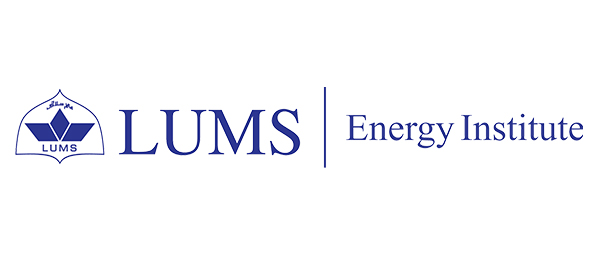
Based out of the Lahore University of Management Sciences (LUMS), Pakistan’s leading research university, the LUMS Energy Institute (LEI) serves as a think tank, centre of technical excellence, knowledge network and capacity-building platform dedicated to institutionalising a renewable-rich future for Pakistan in the most sustainable and cost-effective way possible.
In 2023, LEI was one of the official stakeholders consulted by the government to provide recommendations on integrated system planning, including demand forecasting, generation capacity expansion planning, and transmission system expansion planning, along with contributions to the Energy Conservation Building Code and various other energy-related research and development initiatives.
Additionally, LEI supported the National Grid Company in developing the revised Grid Code 2023, which will significantly improve grid connection process and will facilitate the incorporation of increased renewable energy generation into Pakistan’s power system.

The Institute for Global Environmental Strategies (IGES) is an independent think tank and policy research institute focused on sustainable development and innovative policy solutions. It actively collaborates with governments, international organisations, research institutes, businesses, and local communities and was established under an initiative of the Japanese government, with the support of Kanagawa Prefecture.
In 2023, IGES published the technical report ‘1.5°C Roadmap: An Action Plan for Japan’, which explored the feasibility of achieving rapid and significant reductions in Japan’s GHG emissions. The key findings emphasised the importance of early expansion of renewable energy, particularly rooftop solar, agrivoltaics, and offshore wind, alongside improvements in the electric power system and demand-side efforts, which could lead to nearly 90% energy self-sufficiency by 2050. Additionally, the report estimated that with proper investment in facilities to manage renewable energy intermittency, electricity prices could keep roughly the same as the current levels, with investment requirements that are much lower than Japan’s current annual fuel import costs.

